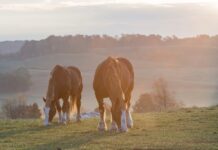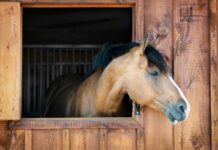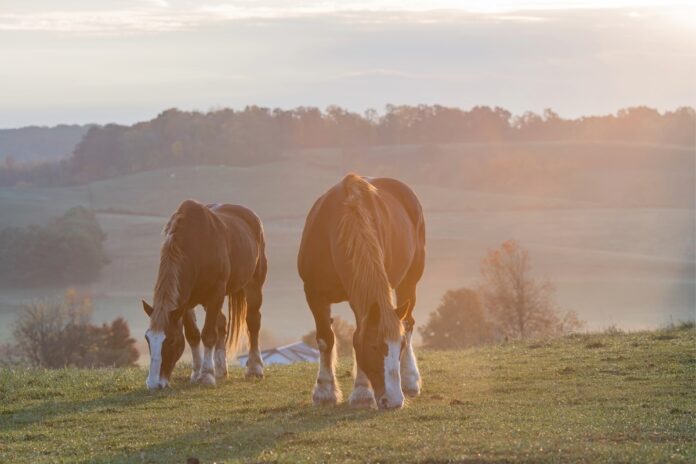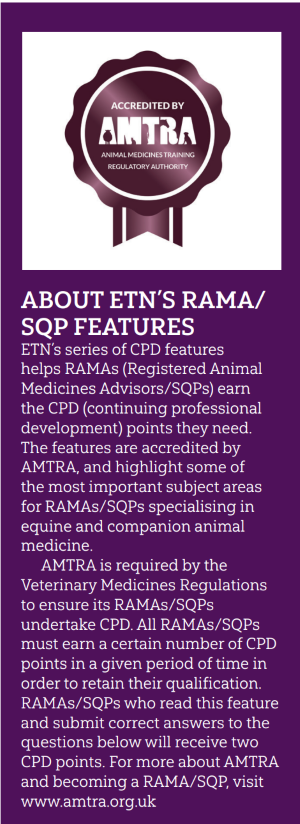
Senior Science
Age is not just a number! Feeding and managing horses well in their twilight years requires a balance of art and science, says SPILLERS Nutritionist, Sarah Nelson who sheds light on some the science that has helped to improve our knowledge of how to best care for senior horses.
Marvels of the microbiome
The horse’s hindgut is home to trillions of tiny microbes including bacteria, viruses and fungi which are essential for fibre digestion and helping to regulate the immune system. Research in healthy horses found that ageing was associated with a reduction in the diversity of hindgut microbes, which may make some older horses more sensitive to changes in diet. Interestingly, no reduction in diversity was seen when this research was repeated in similarly aged ponies. Although the reasons for this are not yet clear, these findings may suggest that ponies ‘age later’ than horses.1
Ageing & nutrient digestibility
If you’ve ever wondered if ageing affects the horse’s ability to digest nutrients, you are certainly not alone. Research published in the 1980s suggested that older horses may require more protein in their diet due to a reduction in their ability to digest it, but it was later questioned whether these findings could have been the result of previous worm damage rather than age.
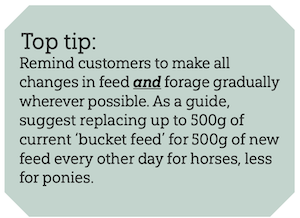
A few decades later (2014), research found that in healthy horses, ‘being senior’ did not affect energy, protein or NDF (fibre) digestibility regardless of whether they were fed hay only, hay plus a starch and sugar based feed or hay plus a fibre and oil based feed. A follow up study showed that age had no effect on mineral digestibility, in fact, mineral digestibility from hay was low in all horses highlighting the importance of feeding a balancer to those that maintain weight easily on forage alone. These studies and similar studies in ponies suggest that age per se doesn’t affect nutrient digestibility, at least for horses and ponies fed appropriate amounts of suitable forage. However, senior horses should still be fed plenty of good quality protein to help support their muscles.2
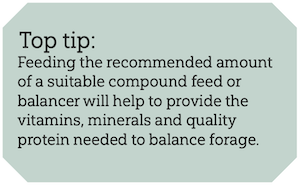
Obesity & immune health
Obesity carries a host of health and welfare risks for any horse but may have additional consequences for senior horses, one of which is exacerbating ‘inflamm-aging’ - a term used to describe chronic low-grade inflammation that occurs in association with ageing. In one study, a reduction in fat and bodyweight in senior horses resulted in reduced levels of inflammatory cytokine (molecules that promote inflammation) in the blood, while increased weight and fat had the opposite effect.3
Diet & PPID diagnosis
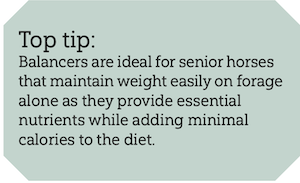
Diagnosing pituitary pars intermedia dysfunction (PPID) or ‘Cushing’s syndrome’ often involves measuring the concentration of adrenocorticotropin hormone or ‘ACTH’ in the blood. Research published in 2018 found that a high starch diet may increase levels of ACTH in blood, potentially leading to the misdiagnosis of PPID.4
Starch & sugar
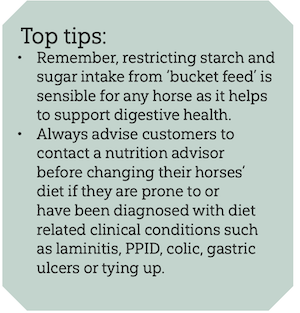
While not all horses and ponies with PPID are insulin dysregulated, many of them are, which means they are at an increased risk of laminitis. However, two studies found even healthy senior horses can have increased insulin response to a meal high in starch or sugar. This suggests that restricting starch and sugar intake may be beneficial for all senior horses, regardless of whether or not they have PPID or a history of laminitis.5
Time to retire?
Last year, researchers published results of a survey completed by >2700 owners/carers of senior horses (15 years and over) in the US, shedding light on the reasons why senior horses may be retired. By developing a better understanding of when and why senior horses are being retired it is hoped that eventually, we will be better placed to monitor for, prevent (where possible), and treat the underlying conditions early on.
- Most horses (62%) were retired between 15-24 years of age, with health problems given as the main reasons.
- Horses with owner reported veterinary-diagnosed laminitis, lameness and degenerative suspensory ligament desmitis had higher odds of retirement than those that did not have these conditions.
- Around 1 in 6 horses had low muscle mass (muscle wastage) according to their owners and in most cases, owners felt this affected their horse’s welfare and ability to work.
- Age, sex, osteoarthritis, laminitis, PPID, and primary use were identified as risk factors for low muscle mass.
- Retired horses were at higher risk of low muscle mass than horses used for competition or pleasure riding.6
How healthy is the ageing population?
In follow-up to the retirement study, the same researchers published further data regarding the health and care status of senior horses in the US. Only 36% of owners/ carers reported their horse/ pony to be free from veterinary diagnosed illness, with osteoarthritis (30%), dental issues (15%), lameness (14%) and PPID (12%) being the most commonly owner reported veterinary diagnosed health issues. In this study, the risk of no health care visits, no dental visits and being visited by the farrier <4 times per year was found to be around 2 times higher in retired senior horses vs seniors used for pleasure riding.7
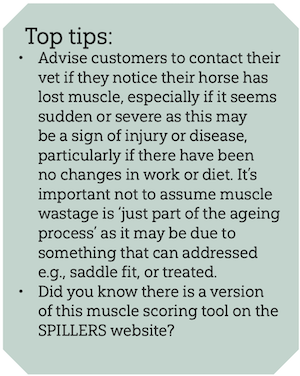
Muscle scoring
While many owners will tell you that their older horse has lost muscle tone, this observation may not be a direct effect of ageing. In fact, a reduction in exercise may have a greater effect on muscle tone than ageing per se. While some degree of muscle wastage may occur with ageing, it can also be caused by lack of exercise, malnutrition, injury, poor saddle fit, some forms of tying up and certain other conditions. Muscle wastage can affect health and welfare in a number of ways, including a reduced ability to work or even simply getting up after laying down.
In 2022, researchers published a system for scoring muscle atrophy or ‘wastage’ in horses in the neck, back and hindquarters. Importantly, the system includes two scales which are based on the body condition of the horse – did you know horses can have a high level of body fat but low muscle mass or vice versa!8
SPILLERS, together with collaborators around the world, have been conducting senior horse research for more than 20 years as part of their ongoing mission to help senior horses live happier, healthier and more active lives for longer.
References

1. Dougal et al (2014), Morrison et al (2018)
2. Elzinga et al (2014), Elzinga et al (2017), Morrison et al (2018)
3. Adams et al (2008)
4. Jacob et al (2019)
5. Jacob et al (2017), Rapson et al (2018)
6. Herbst et al (2023)
7. Herbst et al (2024)
8. Herbst et al (2022)






